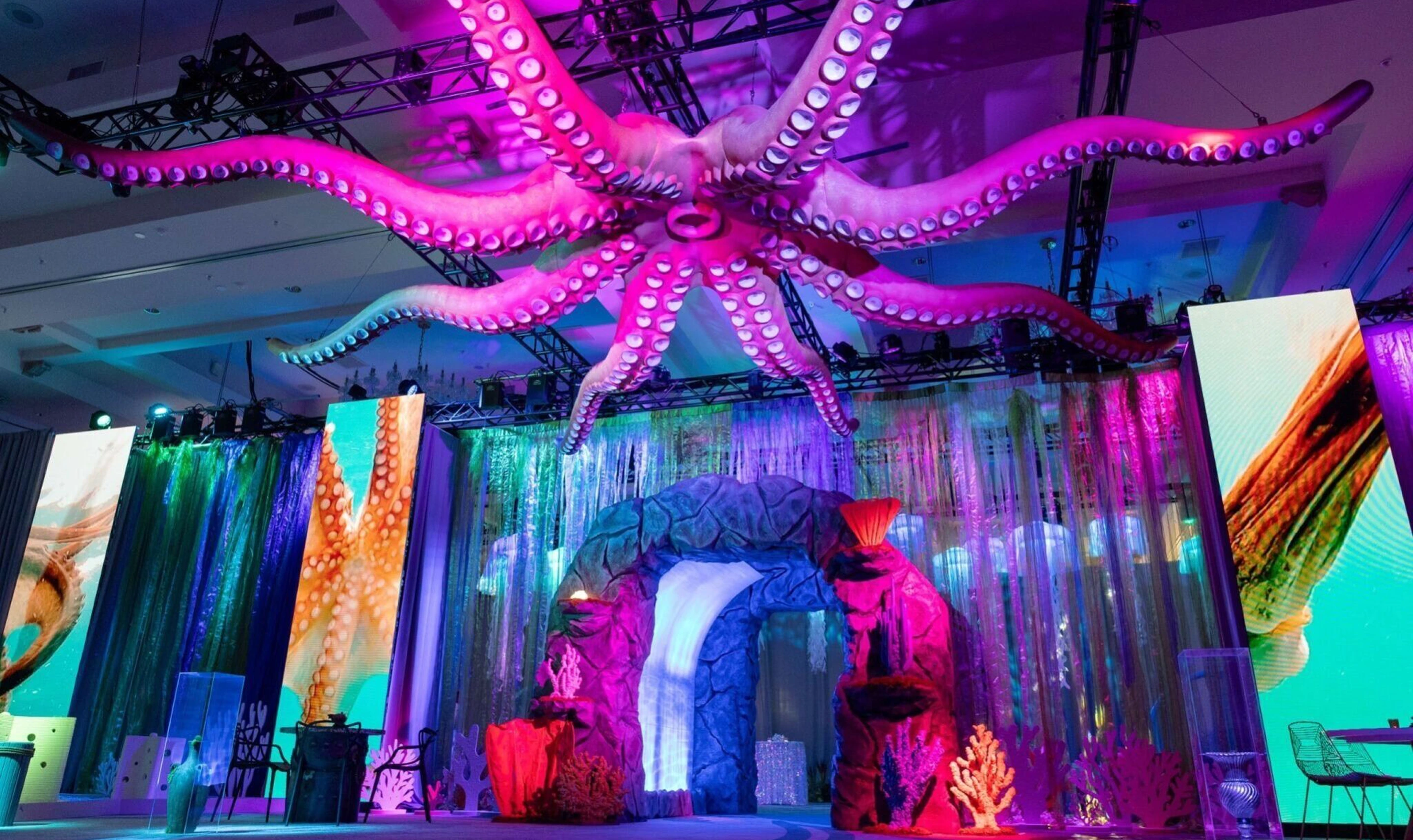

Embracing the evolution of experiential: The top 10 global event trends & innovations

Events are not the same as they once used to be. There’s a shift towards personalized and immersive experiences, known as experiential events. This new approach aims to deliver meaningful, data-driven experiences that foster engagement and create lasting impressions.
In episode 1 of 3 in our limited-edition content series—Embracing the Evolution of Experiential—Augeo’s President of Experience, Joan Wells, and Vice President of Experiential Marketing, Kevin Cobb, discuss the power of experiential events and the top 10 global event trends and innovations.
KEVIN: Number 10, the intersection of digital and in-person experiences.
JOAN: If I’m participating virtually, I expect to have the same voice and the same contributions and recognition as someone who’s sitting in the room. If I’m in the room, I expect to have a voice that is consistently heard via the interactive technology that I have with me at any minute.
KEVIN: It’s the idea of blending the digital interaction points with what’s happening in the room.
JOAN: Which brings us to Number 9, the expectation for participation. Everyone attending the event is not just a passive consumer of content, they are an active contributor in real-time.
KEVIN: I think a good way to talk about Number 8 is this expectation that everyone could participate. The transformation of DEI and sustainability from buzzwords to showing some real movement in this area.
JOAN: It’s a connecting of a corporate brand value system with an individual’s own personal belief system, and it’s powerful. It's all about leaving the community better than you found it. Selecting cities and venues that are shown to be very successful in their inclusion efforts and recognizing those cities, those venues, by selecting them for significant events—and then championing that.
KEVIN: Number 7 is the expectation of customization. We need to be able to have some choice in there.
JOAN: Being seen, being heard, feeling like they had an influence in designing the experience that they are receiving—and I would say technology plays a major role in that.
JOAN: Number 6. How do we create intentional pauses in the experiential journey where participants and attendees can take time to recharge?
KEVIN: One of the resources that is becoming the least available is attention. Creating that pause is so important to be able to recapture that.
Joan: In all the recent workplace engagement studies, levels of stress and burnout are at an all-time high, and a lot of that is due to over-programming—over-scheduling. People need that processing space. I think what brands are seeing is that, in general, the entire experience has more highly engaged attendee participation.

KEVIN: Number 5 is the idea of a changing, evolving sense of luxury as a preference.
JOAN: How do we weigh the quality of the accommodations against other things we might be giving up as part of the experience? What we’re hearing from attendees is that they have a very high preference for luxury accommodations.
KEVIN: Number 4. How do we do more with less, but without giving up the idea of impact?
JOAN: What we’re seeing is a trend away from an older way of looking at creating event experiences and a shift to more of an attendee journey—start to finish—really intentional experience design. That’s where the magic of the experience happens.
KEVIN: This leads directly to Number 3, which is the idea of extending the experience to where the experience is the middle point, and then before and after, making sure you’re extending that value.
JOAN: The biggest connections are happening with experience.
KEVIN: Our Number 2 trend is this idea of maximizing impact through smaller group interactions. People want to have conversations. They want to connect with other like-minded people.
JOAN: It takes an experience from being transactional and makes it transformational. It amplifies the whole experience and makes it transformational versus a passive experience.
KEVIN: And then Number 1, this idea of the new role of data in experience.
JOAN: Clients don’t want to have events that have a short shelf life that they shut off. They need to glean data insights and a broader understanding and relationship with each of their stakeholders to help inform their business for the rest of the year.
*This transcript has been abridged and edited for clarity.
Is your organization ready to transform meetings and events into unforgettable experiences?
Watch this session on demand now. In 5 minutes, learn the top trends and innovations for experiential events.








